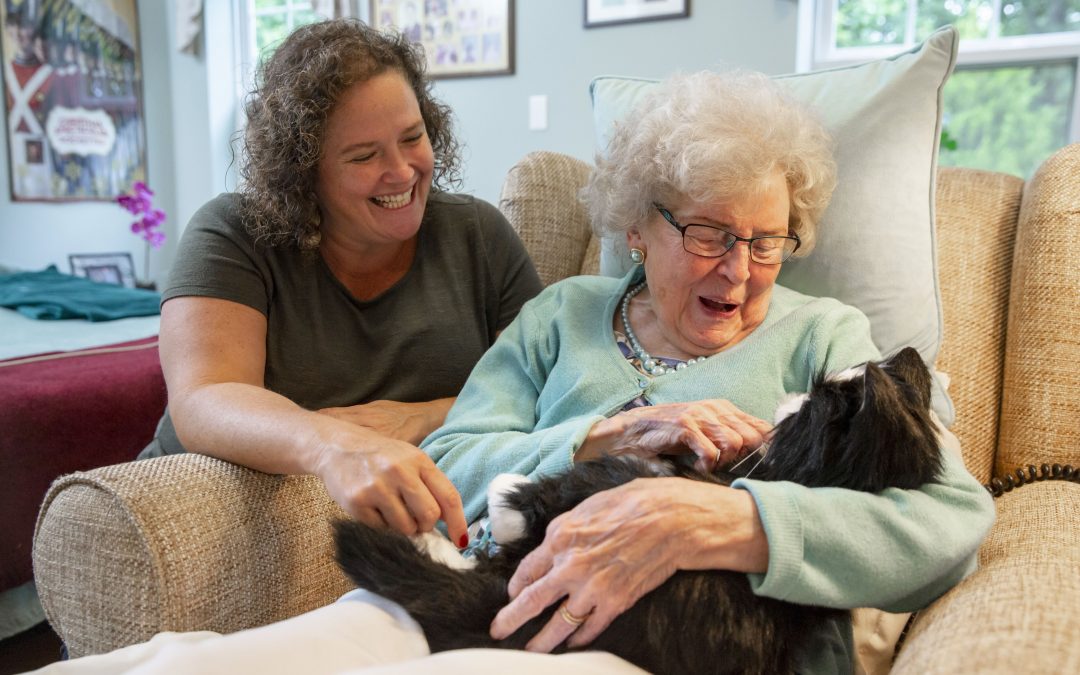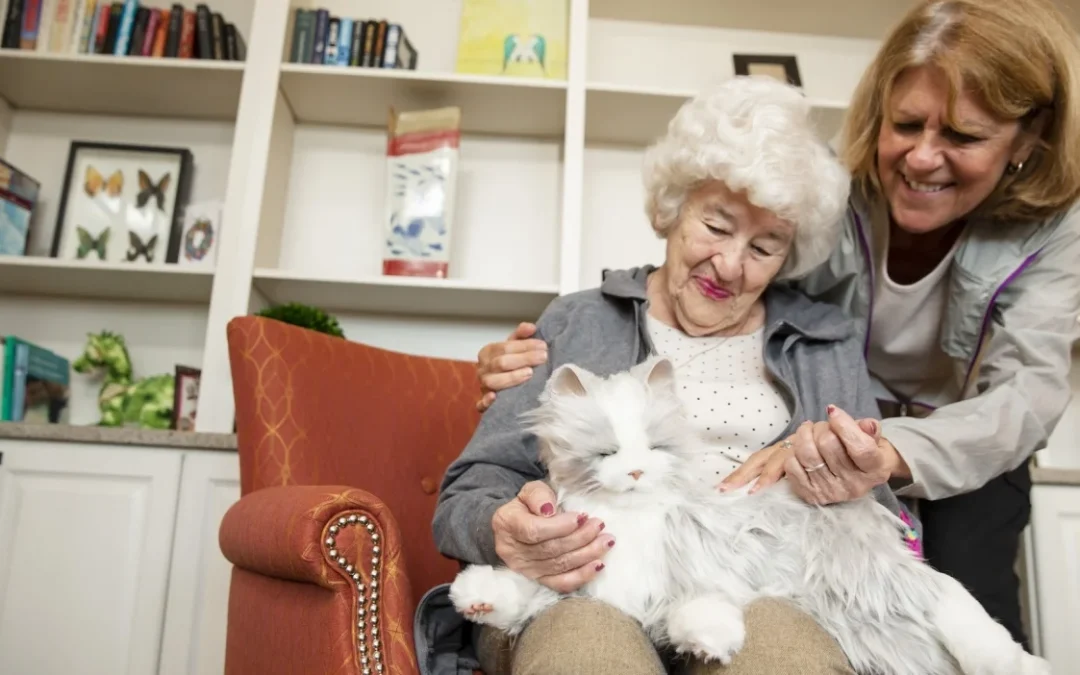
Joy for All Impact and Benefit by Ageless Innovation
The following white paper is a summary of over 10 research studies and the thematic results coalesced from them. Findings include reduced feelings of depression, isolation and loneliness; reduced use of medication; increased cognitive activity; increased feelings of purpose; and reduced burden of care for care partners.



